Arts, science coexist as robotics finds its feet at Las Vegas Academy
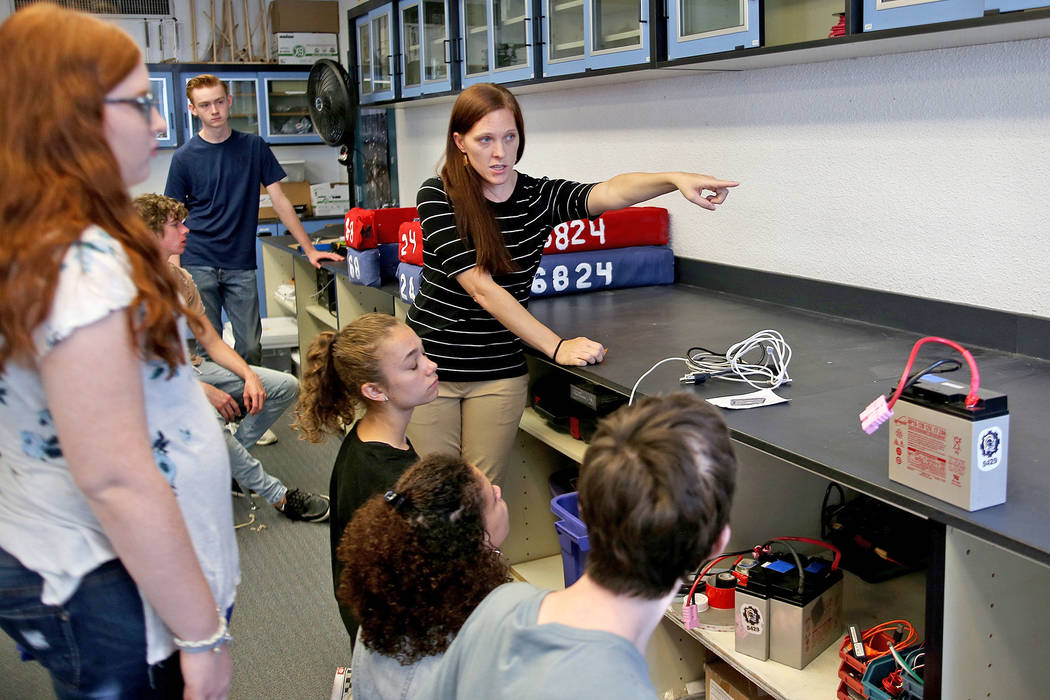
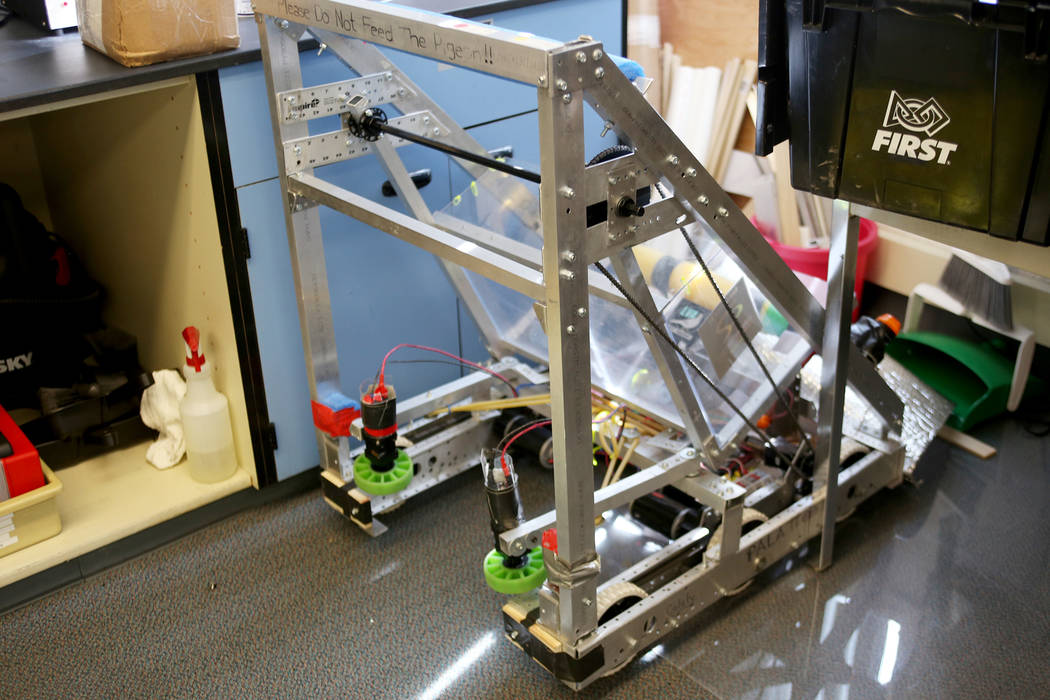

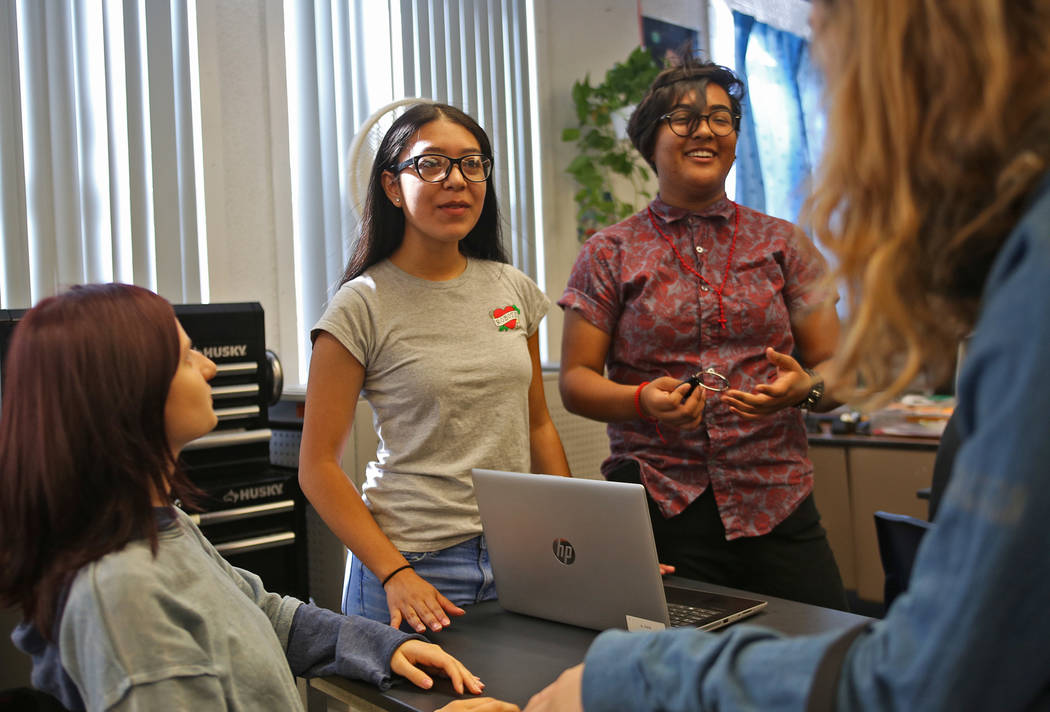
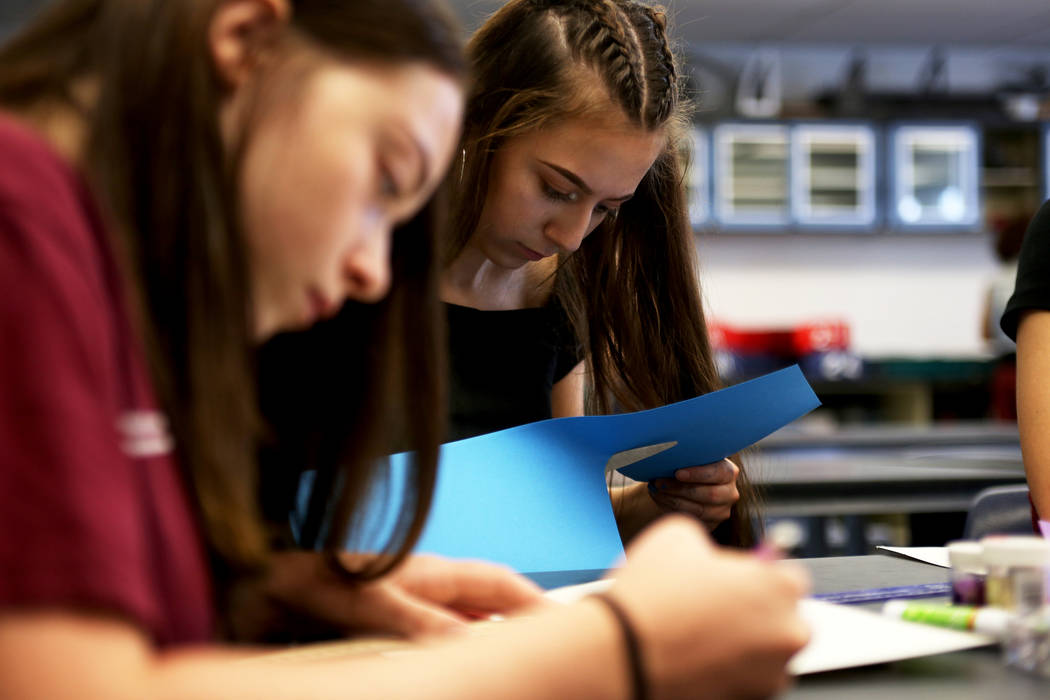
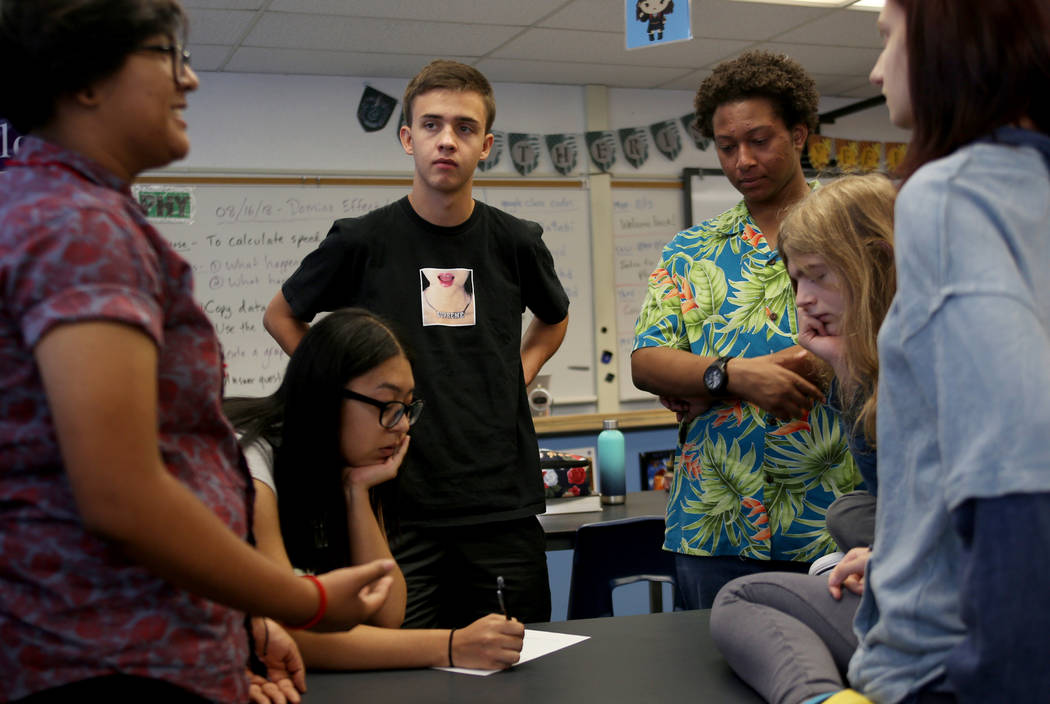
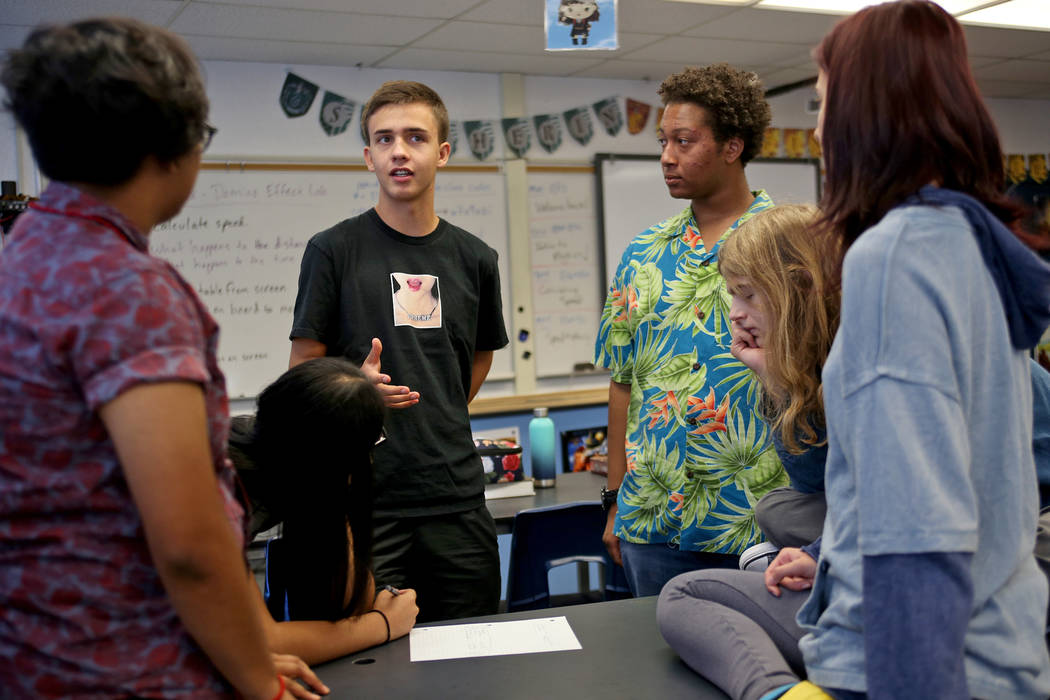
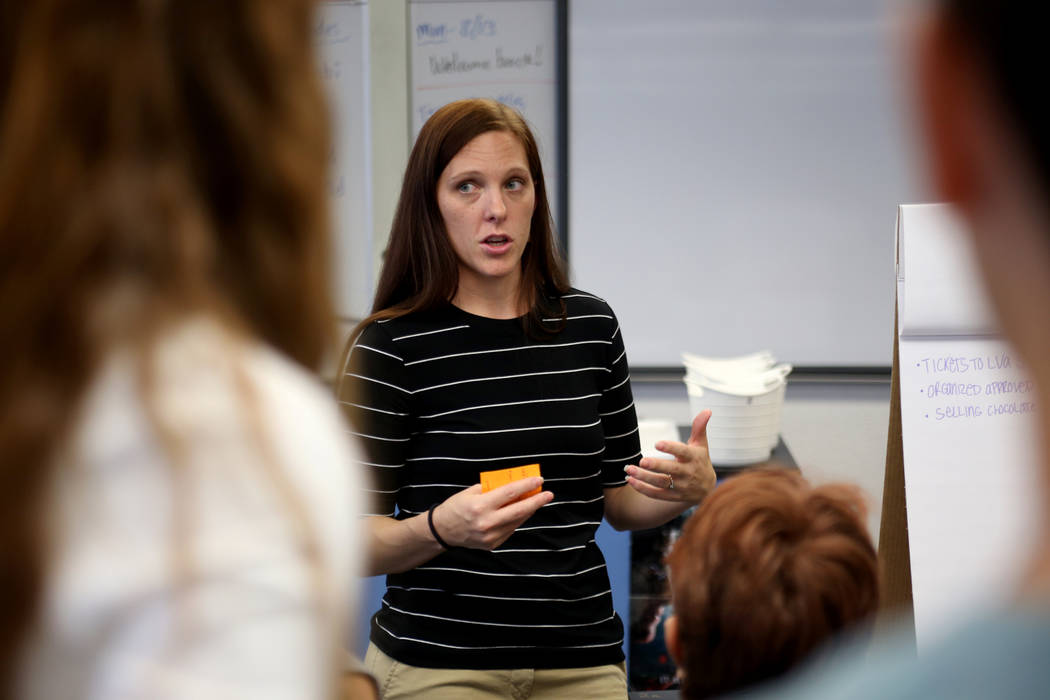
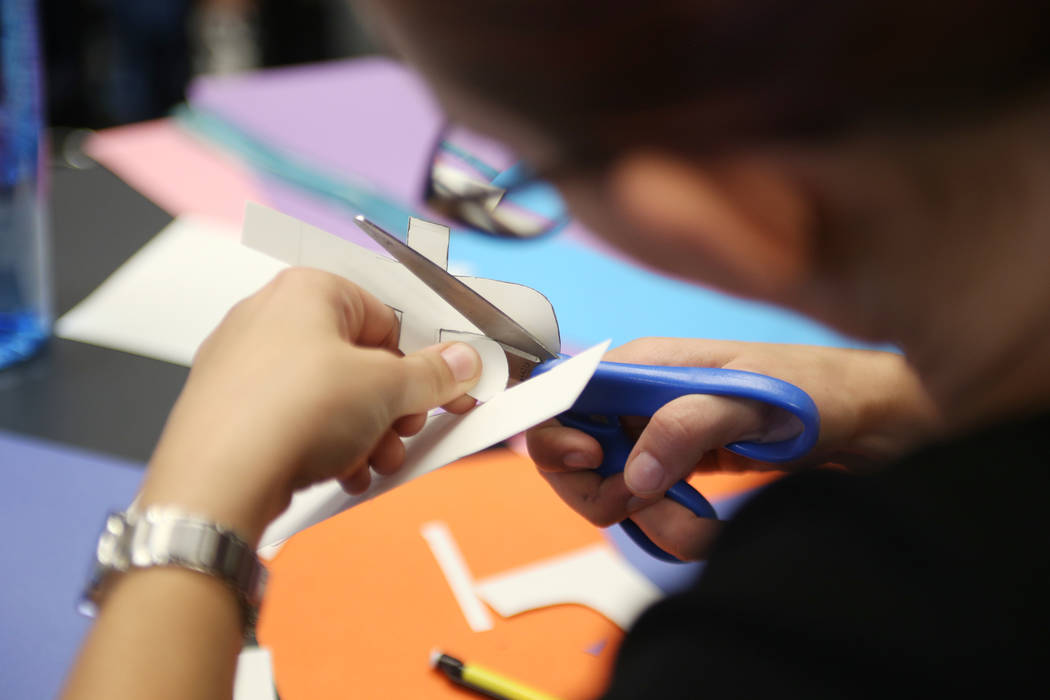
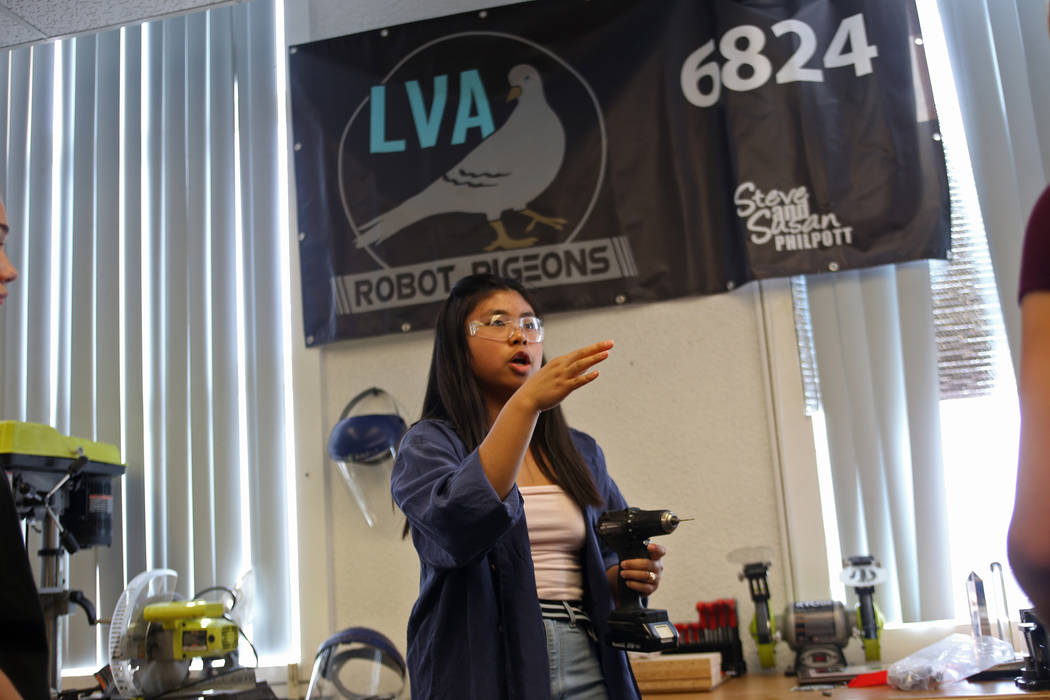
As you’d expect at a performing arts school, students at Las Vegas Academy are more accustomed to building sets than robots.
But that didn’t prevent the aspiring artists in an after-school robotics club called the Robot Pigeons from taking second place last year in a regional student competition and competing at the world championship. The club’s name came from the school’s unofficial mascot, the pigeons that hang around the downtown Las Vegas campus.
This year, nearly 30 students are taking a full-time robotics class under the tutelage of 35-year-old physics teacher Dawn Trujillo, and they have high expectations. They’ll continue the after-school club, too, particularly for students who are interested in robotics but couldn’t fit the elective class into their schedule.
A number of last year’s competitors, while holding onto their arts passions, said they’re now planning to major in some kind of engineering or science field.
“We never really had the potential to do it before,” Haley Yanez, a 17-year-old senior in the vocal program, said of the Robot Pigeons. “Joining was like a second thought, but it really changed our lives.”
Yanez is now considering majoring in engineering and heading toward an entertainment-related field, possibly designing sound or lighting systems for shows.
The success of the fledgling robotics program at LVA is part of a vision for schools across the state.
A good portion of Tesla’s $37.5 million education investment over five years, which it agreed to make in exchange for a $1.2 billion tax incentive package, will go to First Nevada to help get robotics teams up and running at Nevada schools. Tesla recently released $1.5 million in grants as the first installment of that investment to nonprofits statewide to further STEM (science, technology, engineering and math) education in the state.
“It can definitely be at every school in the state with no problem,” Angela Quick, regional director for First Nevada, the state chapter of a nationwide nonprofit, said of the robotics program. “It’s a way to get the kids excited and inspired about science and technology. The kids in the programs have greater school engagement, they’re learning 21st century life skills, they’re majoring in STEM and going into STEM-related fields and professions.”
Preparing for success
To get to the world competition, LVA relied heavily on resources such as those provided by First Nevada as well on expertise from existing robotics programs, especially that of Cimarron-Memorial High School — considered the gold standard in Clark County for robotics programs.
Team 987 High Rollers, as they call themselves at the school, has won so many robotics competitions — contests in which robots are pitted against one another to solve a particular task — it’s considered a Hall of Fame team. The group also has been recognized for its work assisting other robotics programs and for increasing the number of female competitors, often underrepresented on robotics teams.
Tesla recently bestowed a newly created award on the team for the work they’ve done, which has included assisting rookie teams like the one at LVA.
“We built most of our robot there, they mentored us,” said 17-year-old LVA senior dance major Taylor Colety. “You’re all still friends off the field.”
The LVA team’s instant success may seem remarkable, but students who made it happen have a few ideas about why things went so well from the get-go.
Since arts programs emphasize collaboration, LVA students already knew how to work well in teams, said Jackson Johanek, a 17-year-old senior band major.
“It was just the robot we had to focus on,” he said.
‘You have to ask for help’
Few of the students had experience building robots, Johanek had done a Lego League program at a middle school in Florida. And Zackary Perry, a 17-year-old senior theater major, has experience with tools from building sets. But programming was new to all of them, including Trujillo.
That’s where organizations like First Nevada came in. They run training programs for rookies and Trujillo said she signed herself and her team up for as many as she could.
“They were incredibly helpful,” she said. “You can’t have an ego when you do this, you have to ask for help.”
Right now, Trujillo’s team is focusing on grassroots organizing efforts, looking for sponsors and other donations to build on money donated by Stephen and Susan Philpott last year. Competition entry fees can be as high as $6,000, and there are substantial costs associated with tools and materials as well.
The Tesla donation to First Nevada will help schools cover startup costs, but the idea is to wean new teams off that funding as they, too, harness support for the programs from their communities as LVA is doing.
“The first year, they don’t focus on fundraising, it’s all taken care of, then amounts go down so they can learn the fundraising,” Quick said. “It sets them up for success.”
Contact Meghin Delaney at 702-383-0281 or mdelaney@reviewjournal.com. Follow @MeghinDelaney on Twitter.
Tesla investment
The company recently announced the first $1.5 million grant funding, which is part of a $37.5 million investment in education planned over the next five years to benefit STEM education in Nevada.
The first reciepients are:
— $315,550 to FIRST Nevada and $127,100 to Robotics Education and Competition Foundation as part of a multi-year investment aimed at establishing the high school robotics programs.
— $263,924 to the Desert Research Institute to development of a teacher training infrastructure focusing on robotics and STEM.
— $262,700 to The Envirolution, Inc. for the Project ReCharge initiative, a program which teaches students about energy and ends with students on a real-life quest to improve efficiency for a local school or business.
— $200,000 to Jobs for Nevada’s Graduates to develop a new “Education to Employment” pathway across Nevada industries and expand access to the program by 20 percent.
— $154,083 to Sierra Nevada Journeys to provide 250 scholarships for students in underserved communities to attend the Overnight Outdoor Learning program at Grizzly Creek Ranch, increase access to STEM programs to 900 additional students and start a new Girls in Engineering camp in partnership with Tesla team members.
— $76,643 to Energetics Education to pilot the Solar Rollers program in Washoe County. High school teams design, build, test and race sophisticated solar-powered, radio-controlled cars. This is the only program that does not currently exist in Nevada in some form.
— $50,000 each to Clark and Washoe counties to establish a new career technical education positions to train and implement programming from within. The role will also support rural districts.













